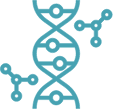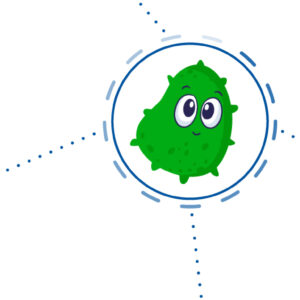BROWSE OUR GENETIC TESTS
Select one of our test categories below to learn more or browse our full portfolio here.

ONCOLOGY
Learn about your cancer risk with the
Hereditary cancer panels or
characterize a tumor with our tumor
diagnostic panels

RARE DISEASE PANELS
Browse through our rare disease gene
panels, to identify the one that can
diagnose the symptoms of unknown
origin

REPRODUCTIVE HEALTH
Learn about your options towards a
healthy reproductive journey including
before and during pregnancies

NEWBORN SCREENING
Learn about newborn screening and
how it can be used for the early detection
and treatment of newborns
PHARMACOGENOMICS
Learn how a person’s genetic makeup
can affect their response to medication,
and predict whether they may
experience side effects

WHOLE EXOME SEQUENCING
Understand how whole exome
sequencing can help diagnose cases that
do not fit into a phenotypic category
from our rare disease panels
DIAGNOSTIC REPORT
When a test is ordered by a physician, a diagnostic report outlining the results of the sequencing analysis is provided. Changes in DNA sequences (variants) will be reported and the interpretation of these variants by a scientist and a medical geneticist, within the context of the clinical picture, will be described. The diagnostic report contains the following sections:
Patient information and clinical information: The clinical picture is necessary for an accurate interpretation of the sequencing results and is therefore outlined in the report as provided by the ordering physician.
Results Summary: a list of variants identified and their classification according to ACMG guidelines.
Results Interpretation: detailed interpretation of the variants detected and the their affects on the function of the protein, where known. This section also includes data from published scientific literature that describe similar cases and all data sources are cited.
Recommended actions: suggestions by our medical geneticists which may include further testing, family testing, monitoring recommendations and/or interventional treatments.
In addition, tables with variant details, test methodology, analysed genes, coverage analysis, technical limitations and variant classifications are included.

TECHNOLOGY
Medicover Genetics employs a combination of several molecular genetic technologies to offer the best solution for each individual case. Spanning cytogenetic analyses, molecular pathology solutions, the latest in Next Generation Sequencing (NGS) technology and microbiome sequencing, Medicover Genetics offers a complete in-house and tailor-made portfolio produced in our laboratories in Germany and internationally. With more than 20 certified genetic counsellors across all of our markets, we support our patients to explain the complex findings a genetic diagnosis might present.
Medicover becomes the sole testing site in Europe for Bionano’s Saphyr technology. The third-generation optical mapping solution aims to provide the missing information in genome research with rapid, high-throughput, long-range genome mapping with unmatched structural variation discovery capabilities. If proven successful, this technology will allow us to resolve large-scale structural variations currently missed by next generation sequencing (NGS) systems.
Learn more about our techniques by clicking on the links below.
- Classical chromosome analysis
- Molecular karyotyping
- Fluorescence in situ hybridization
- Multiplex ligation-dependent probe amplification
- Chromosomal microarray analysis
- Next generation sequencing - illumina NovaSeq technology
FAQs
How do I get tested?
All Medicover genetic tests must be ordered by a physician or by one of our medical geneticists. Please select your region and speak to one of our representatives to find a physician or medical geneticist to speak about genetic testing and find the right test for you.
What types of samples can Medicover Genetics accept?
We accept a wide variety of samples depending on the requested test. For full details of sample types accepted, please click here: www.medicover-genetics.com/order-a-test/
What type of test will diagnose my condition or the condition of my child?
We offer many tests designed for specific conditions. A scientific and medical summary of each condition is provided, as well as the list of genes that will be tested for that condition. Speak with a physician about the symptoms and find the right test for you. You can also speak with our medical genetic counselors to help you find the right test.
What is genetic counseling?
Genetic counseling is one of the most important steps during your genetic testing journey. The possible outcomes of any genetic test can be complex and not easily understood by a non-expert, therefore we believe that genetic counseling is a must for all patients who seek genetic testing. Genetic counseling sessions are offered before and after testing, upon request.
How can I schedule a genetic counseling session?
To schedule a counseling session, select your region and speak to one of our representatives to find a medical geneticist to speak about genetic testing and find the right test for you.
How long does it take to access my results?
The turnaround time for the tests are displayed for all of our tests. Generally speaking, gene panels take 15-20 days to deliver a report, while reproductive health tests, such as non-invasive prenatal testing take 7-10 days to deliver a report.
LATEST ARTICLES





















